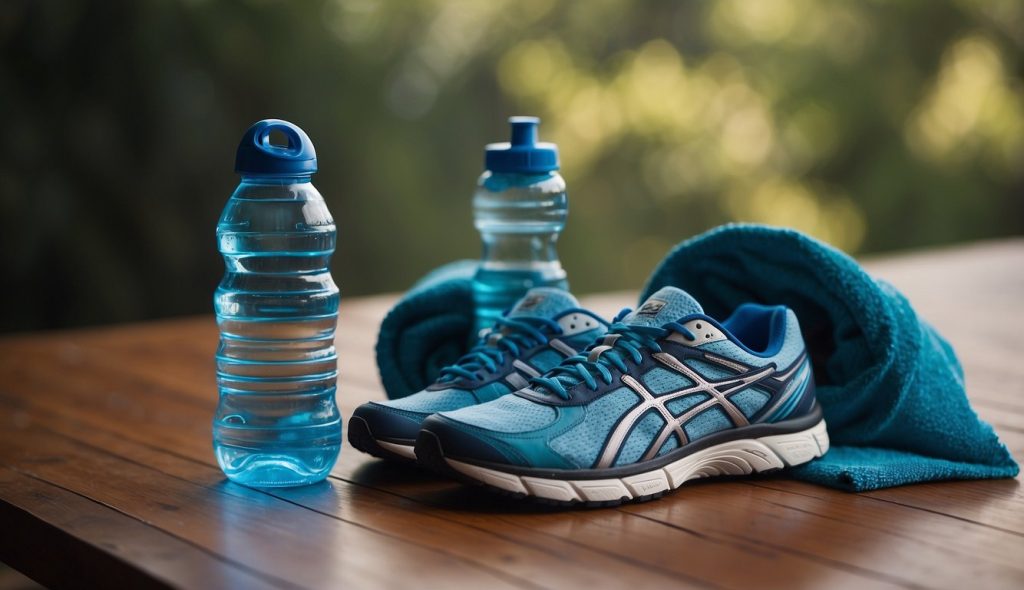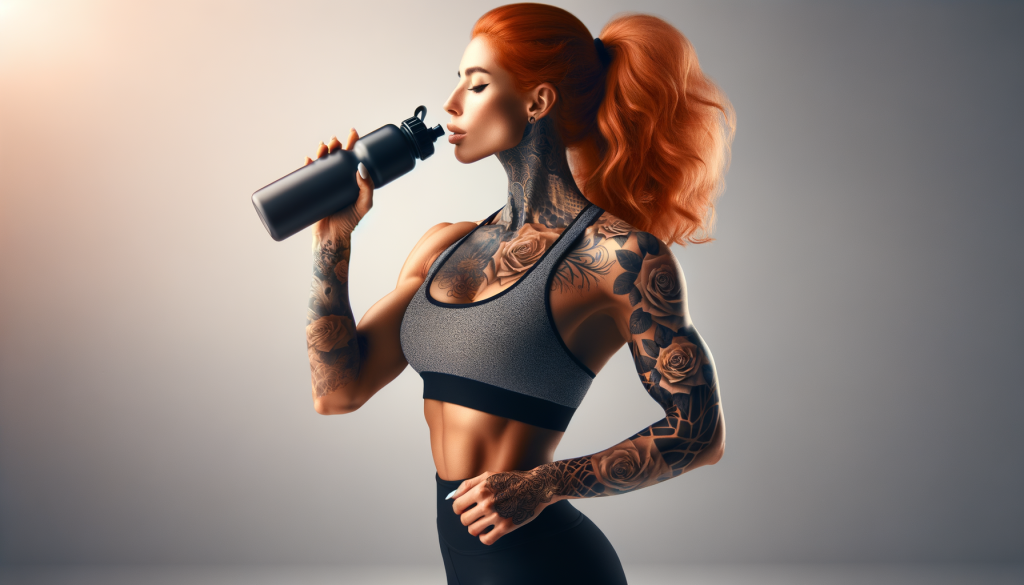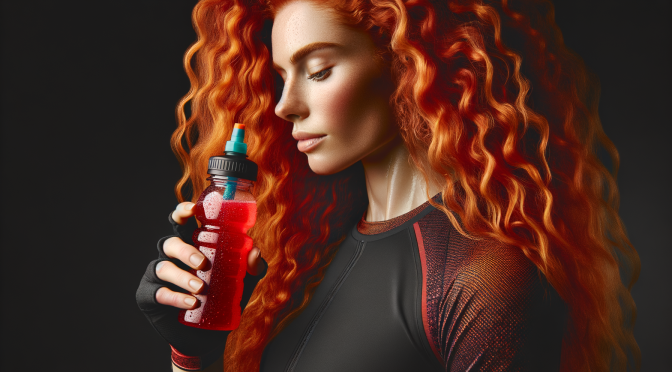Maintaining proper hydration is crucial for athletes at all levels. Your performance and health are significantly influenced by your body’s fluid balance. During physical activity, the body loses water and electrolytes through sweat production. You must replace these losses to keep your muscles and heart working well. Inadequate hydration can lead to fatigue, decreased coordination, and even severe health complications. So, learning to stay hydrated is a key part of any athlete’s training.

As you train or compete, your hydration needs can vary widely. They vary based on the intensity of the activity, the environment, and your body’s characteristics. You need your own strategies to stay hydrated. They must fit your needs. This includes drinking before exercise. You also must know how to replenish your body during and after your workouts to restore fluid balance. Ignoring these guidelines can impede recovery and adversely impact your subsequent performances.
Proper hydration is more than just drinking plain water. It involves the delicate balance of water and electrolytes. Sodium and potassium are electrolytes. They are key to regulating your body’s fluid balance. You lose them with water when you perspire. Simply drinking water might not be enough. This is especially true for longer exercise or in extreme temperatures. You should consider the timing, amount, and type of drinks you consume to stay hydrated. Also, learn to recognize the signs your body gives when it needs more fluids.
Definition of Athlete Hydration

Athlete hydration means managing fluid intake. It ensures an optimal balance of water for athletic performance.
Importance of Proper Hydration for Athletic Performance
Your body relies on proper hydration levels to perform at its best. When you’re hydrated enough, fluids take nutrients to cells. They also remove waste, cushion joints, and help keep a stable core body temperature. During exercise, dehydration can hurt your performance. It reduces endurance, strength, and raises the risk of heat illnesses.
Maintaining hydration is not just a matter of drinking water. Balanced fluid intake requires replacing electrolytes. The body loses them through sweat, for example sodium and potassium. These electrolytes are crucial for muscle function and fluid balance. An effective strategy to hydrate encompasses:
- Pre-exercise fluid intake: Drink plenty of water and electrolyte drinks before your activity. They help your body prepare for fluid loss.
- Hydration during exercise: Monitor your hydration by paying attention to thirst cues. Also, track fluid consumption at regular intervals. Do this especially in longer or more intense sessions.
- Recovery hydration: You must drink fluids after exercising. This is vital to rehydrate, especially if you have an upcoming event or training session.
Recommendations for fluid intake can vary. Individual needs, exercise duration, intensity and environmental conditions determine them. They are also based on sweat rates. You must learn to recognize the early signs of dehydration. These signs include fatigue or dark-colored urine. You must also learn how to hydrate well. This is crucial to safeguard your health and improve performance.
Factors Affecting Hydration
Hydration is crucial for your optimal performance and safety during physical activities. Understanding the factors that influence hydration can help you tailor your hydration strategies. This will help you get the best results.
Sweat Rates
Your sweat rate is a critical indicator of your hydration needs. It’s determined by your activity level and the exercise intensity. The more intense the activity, the higher your sweat rate will be. This increased sweat rate equates to greater fluid losses that you need to replace to maintain your hydration status.
Body Size and Weight
Your body size and weight significantly affect how much fluid you need. Larger individuals or those with more muscle mass typically have higher sweat rates. Consider your body’s needs when planning hydration. Sweating patterns can vary greatly from person to person.
Environmental Conditions
The environment you’re active in plays a role in how much you need to hydrate. High temperatures and humidity increase sweat loss, escalating your hydration requirements. On the flip side, cool climates can also impact your hydration needs, as you might not notice the sweat and may underestimate fluid loss. Monitoring the climate is key. You should adjust your hydration strategy based on it. This is vital for staying well hydrated.
Hydration Guidelines for Athletes
Proper hydration is crucial for peak performance and recovery. Following the guidelines can help keep you hydrated during and after exercise.
General Recommendations for Fluid Intake During Exercise

Your hydration plan during exercise should match the intensity and duration of the activity. Drink 6 to 12 ounces of fluids every 20 minutes of exercise. Not just any fluid will do. Water is okay for short durations. But, in longer sessions, a sports drink with electrolytes and carbohydrates is helpful.
Pre-Exercise Athlete Hydration Strategies
Begin hydrating at least 2-3 hours before exercise with 16 to 24 ounces of water or a sports drink. Then, 20 to 30 minutes prior to exercise, drink an additional 8 to 10 ounces. This pre-hydration strategy sets the stage for optimal physical performance.
Post-Exercise Rehydration Tips
After exercising, rehydrating is essential for recovery. A good rule of thumb is to drink 20 to 24 ounces of fluid for every pound lost during activity. Choose a fluid replacement option like a sports drink. It should have water, electrolytes, and a bit of carbohydrate. These will help restore your hydration.
Monitoring Athlete Hydration Status
Maintaining optimal hydration status is crucial for your performance and health. Accurate monitoring of fluid balance can help you avoid dehydration and overhydration.
Methods to Determine Fluid Losses During Exercise
To assess fluid losses during physical activity, you can track sweat loss by measuring body mass before and after exercise. Subtract your post-exercise weight from your pre-exercise weight to determine fluid loss. It’s important to account for any fluids you consumed during the session. Here’s a simple method you can follow:
- Weigh yourself without clothes before exercise.
- Record the weight.
- After exercising, dry off any sweat and weigh yourself again without clothes.
- Subtract the second weight from the first to find the weight change.
- Convert this weight change to fluid volume (1 kg = 1 L of water).
Remember to replace each kilogram lost with an equivalent volume of fluids.
Importance of Tracking Body Weight Before and After Exercise Sessions
Consistently track your body weight before and after exercise. You can determine if you are hydrated and in fluid balance using this simple way. This method reflects the changes in body water that occur due to fluid loss primarily from sweat. A significant reduction in post-exercise body weight (more than 2% of your body mass) signifies notable dehydration.
Also, monitoring the color of your urine can indicate if you are hydrated.
- Pale yellow urine typically indicates adequate hydration.
- Dark yellow to amber urine suggests dehydration.
Keep a hydration chart to log urine color and body weight fluctuations. Monitor regularly. Use the data to personalize your hydration strategies. This will help you maintain fluid balance for top exercise performance.
Sports Drinks Vs. Water: What to Choose?
When choosing between sports drinks and water for hydration, consider your activity level. Also think about the duration and rate at which you sweat. Both choices are critical for staying hydrated. But, they serve different purposes based on your activity’s demands.
Benefits of Sports Drinks for Athletes
Sports drinks have a mix of electrolytes and carbs. They help during long exertion or when you’re exercising in heat. Your body loses key electrolytes like sodium and potassium through sweat. They need to be replenished to keep body fluid balance and prevent dehydration. The American College of Sports Medicine recommends drinking fluids with electrolytes. Do this during a prolonged exercise bout.
- Electrolytes: Sports drinks contain sodium. They usually have 35 to 200 mg per eight ounces. They also contain potassium, which is typically 15 to 90 mg per eight ounces. These minerals help balance your body’s fluid levels.
- Carbohydrates: Carbohydrates in sports drinks can provide an immediate energy source. They often come in the form of sugars, which can be quickly absorbed and used by your body.
For activities lasting over an hour, or in hot conditions and/or humid places where the sweat rate is high, your water alone may not be enough. Sports drinks can replace lost electrolytes. They also provide the energy to keep your performance up.
Athlete Hydration: Frequently Asked Questions
Q: What is the optimal hydration for an athlete?
A: The best hydration for you, the athlete, is to drink enough water so you’re not thirsty and your pee is light yellow, like lemonade. Before you exercise, drink some water, and keep sipping every 15-20 minutes while you’re active. Afterward, drink more to replace what you’ve lost from sweat. If you’re working out for longer than an hour or it’s really hot, a sports drink can help replace lost electrolytes. Remember, your exact needs depend on how active you are, so listen to your body!
Q: What do professional athletes drink for hydration?
A: Athletes drink water to stay hydrated. But, they also use sports drinks with electrolytes. They do this during long and intense workouts or games. These drinks help replace the minerals they lose when they sweat. Some athletes might also drink things like coconut water. They make special hydration plans with their nutritionist to fit their needs and keep their bodies in top shape.
Q: How often should an athlete rehydrate during activity?
A: As an athlete, you should take a sip of water every 15-20 minutes during your activity. If you’re exercising for more than an hour or in hot weather, you might need to drink more often. Listen to your body—if you’re feeling thirsty or your mouth is dry, it’s definitely time to rehydrate. Remember, keeping your body hydrated helps you stay at the top of your game!
Q: How can an athlete reduce dehydration?
A: To beat dehydration, start by drinking water throughout the day, not just when you’re exercising. Before you start a workout or game, drink some water to get a head start on hydration. While you’re active, keep sipping water regularly—don’t wait until you’re super thirsty. After you’re done, drink more to make up for what you sweated out. And don’t forget to eat hydrating foods like fruits and veggies. They’re like a bonus splash of water and nutrients! Stay cool and listen to your body; it’ll tell you when you need more fluids.
Q: How much water do pro athletes drink a day?
A: Pro athletes drink a lot of water—way more than people who aren’t as active. They might drink between half an ounce to one ounce of water for each pound they weigh, every day. So, if an individual athlete weighs 180 pounds, they could drink between 90 to 180 ounces of water. That’s a lot, like filling up a small kiddie pool! They need this much to make up for all the water they lose from sweating during their tough workouts and games. Remember, everyone’s different, so they might drink more or less depending on their body and how much they exercise.

